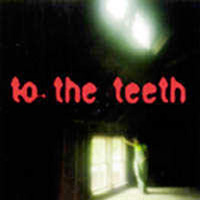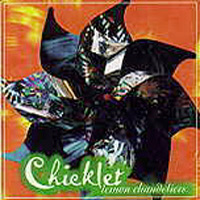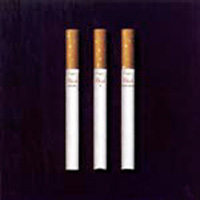 Ani DiFranco
Ani DiFranco
To the Teeth (Righteous Babe)
by Jamie Kiffel
For a slow disc full of tracks that take over two minutes to drag their experimental asses out of strummy auto-auroticism, To the Teeth is one gutsy album. Welcome to Ani DiFranco‘s Purgatory, a space between the Ani you know and the Ani you don’t. With both fists raised, DiFranco seems to have reached out and seized all the feral, stripped-down, rootsy sounds she can, and slashed them across her guitar and vocal chords. Funk, hip-hop, rap, jazz, country and folk rub heads and horns, leaving listeners grasping at new notes. There are no great hooks. The disc is so self-righteous that it opens with a track so slow, subtle and meandering that it’s nearly spoken word (not exactly top-40 material). Those hopeful that DiFranco was swimming from Little Plastic Castle into the pop world will be left treading water. Almost passive-aggressively, DiFranco tests fans’ faith, daring to experiment with taste combinations as unlikely as saffron and chewing tobacco, teetering at the risk of smashing success and bang-up defeat.
While it isn’t all a smooth ride, for those willing to take the bumps, there is a lot to learn along the way. Within certain long spaces between the words and notes, there is something evolving. Where mainstream pop bands produce 12 tracks of well-scrubbed children fit to perform at the drop of a quarter, DiFranco has crammed her disc full of 13 unwashed, half-trained little monkeys with their faces full of fingerpaint. Whether or not we want to show them off to the relatives (or mainstream radio audiences), one can’t deny that DiFranco’s sloppy little artists carry more future potential than any trained prep: no matter how many dollar signs shine in his eyes. These nature children are unfinished, charming works in progress. And so DiFranco risks losing dollar-bearing pop fans in exchange for – gasp! – her values, by releasing a full album of intractable tracks, not even paid for by a massive label that can afford it, bound never to sell more than new, artistic ideas. No money grubbers here. DiFranco even slams MTV on the first cut. She’s looking for reactions, not for reimbursement. And the fans, those who are really listening, will realize that not selling out has a lot in it for them, too: it isn’t always great music, but they get a very rare, personal look at the artist. They see her as a developing child, her head sometimes in the paint bucket (as in certain mortifying rap interludes), other times raising her paint-streaked hair and grinning with bald revelation (see “Freak Show,” hawking lyrics loud and dissonant,  mixing funk and atonal howls into the grinding, grubby call of the carny). There are certainly old-school Ani moments, as in “Soft Shoulder,” a song of ill love derailed, or “Wish I May,” with the unmistakably DiFranco line, “I’m stumbling down the gravel driveway of desire/ trying not to wake up/ my sleeping self-loathing.” There are also songs like “Hello, Birmingham,” that run on like self-indulgent essays, good for only an occasional listen. But for the most part, fans can be proud that DiFranco is standing tall here, outside her formerly love-scraped self, and trying something very new. She proves herself, for better or for worse, for richer or for poorer, to be married to her ideals. And whether or not these songs will expand her bank account, they will expand the truth of her vision… and maybe our karma, as well, for taking the time to listen.
mixing funk and atonal howls into the grinding, grubby call of the carny). There are certainly old-school Ani moments, as in “Soft Shoulder,” a song of ill love derailed, or “Wish I May,” with the unmistakably DiFranco line, “I’m stumbling down the gravel driveway of desire/ trying not to wake up/ my sleeping self-loathing.” There are also songs like “Hello, Birmingham,” that run on like self-indulgent essays, good for only an occasional listen. But for the most part, fans can be proud that DiFranco is standing tall here, outside her formerly love-scraped self, and trying something very new. She proves herself, for better or for worse, for richer or for poorer, to be married to her ideals. And whether or not these songs will expand her bank account, they will expand the truth of her vision… and maybe our karma, as well, for taking the time to listen.



